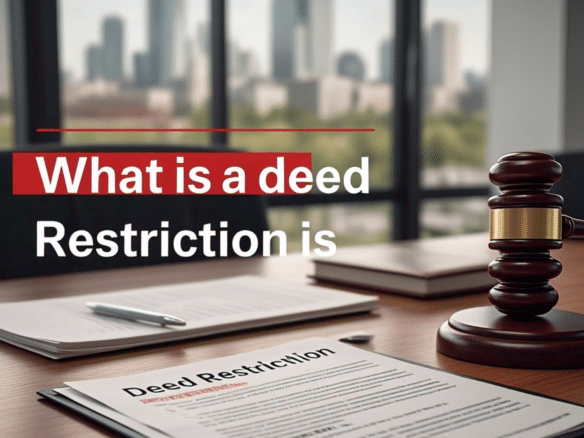The real estate industry is both competitive and highly regulated, requiring strict adherence to ethical standards and legal rules. In 2024, many real estate professionals faced license revocations due to a range of violations. For example, in California alone, 262 licenses were revoked by April. If you are a Real Estate agent. You must ask questions such as, ‘How can you lose your real estate license?’ Common reasons for lossing a real estate license include breaking ethical rules, mishandling money, misleading clients, or violating laws.
Understanding the different ways to lose a real estate license is crucial for agents who want to safeguard their careers and avoid serious repercussions. Many agents unknowingly commit errors that can result in a real estate license being cancelled, suspended, or revoked. Protecting your real estate license is not just about following guidelines; it’s about recognizing the responsibilities that come with this professional privilege.
This article will guide you through the most common mistakes, such as dishonesty in advertising, betraying client trust, engaging in fraud, practicing law without a license, and more and also how you can save yourself from losing your Real estate licence. By staying informed and cautious, you can protect your real estate license and career. Here are 21 Ways to Lose a Real Estate License with detail explination.
1. Misrepresentation of property
Misrepresenting property information is one of the leading reasons for losing a real estate license. This includes providing false or incomplete details about a property’s condition, legal status, or other significant factors. Whether intentional or accidental, such actions violate trust and can lead to severe consequences, including lawsuits and license revocation.
Misrepresenting facts about a property creates distrust and legal vulnerabilities, often resulting in disciplinary action. For example, some agents fail to disclose their true relationship to a transaction, such as acting as an undisclosed principal or misusing agency disclosure forms. These actions are considered ethical breaches and reflect poorly on the profession. Licensing boards often uncover patterns of misconduct during investigations, escalating minor oversights into serious violations.
For instance, one broker lost their license for using a “straw man” buyer to conceal their interest in a transaction. Avoiding misrepresentation is not just about following laws; it is about protecting your career from becoming another cautionary tale of how real estate licenses are lost.
2.Failure to Disclose Property Issues
Failing to disclose property issues is among the most serious reasons to lose a real estate license. This occurs when an agent or seller withholds important information about a property, such as structural defects, environmental hazards, or legal disputes. Buyers rely on full transparency to make informed decisions, and any omission—whether intentional or accidental—can result in lawsuits, financial penalties, and reputation damage. Disclosure laws vary by state, but agents are generally required to provide complete and accurate information about a property. For example, neglecting to disclose a past flooding issue or termite damage may lead to a dissatisfied buyer and, eventually, disciplinary action.. According to the National Association of Realtors (NAR), property conditions and disclosure issues are among the top legal challenges faced by agents.
As William Moran, chief of enforcement at California’s Real Estate Commission, advises, “When in doubt, disclose—and do it in writing.” Failure to follow this principle is not only unethical but also one of the top ways to lose your real estate license.
A consistent lack of transparency can quickly jeopardize an agent’s career. Real estate professionals are often required to use specific agency disclosure forms to ensure buyers and sellers are aware of relevant property details. Ignoring this requirement or failing to disclose conflicts of interest—such as an agent acting as an undisclosed principal in a transaction—can lead to severe consequences, including license cancellation. Licensing boards investigate patterns of non-disclosure, and repeated violations almost always result in penalties. For instance, an agent who failed to reveal a relationship with a buyer acting as a “straw man” had their license revoked. These examples highlight why adherence to disclosure requirements is crucial. Ensuring transparency protects not only clients but also your career, making disclosure failures one of the most avoidable ways to lose your real estate license.
3. Involvement in Illegal Activities
Engaging in illegal activities is one of the most serious reasons to lose a real estate license, as it undermines client trust and the profession’s integrity. Common violations include mortgage fraud, such as falsifying loan applications or inflating property values, and money laundering, where real estate transactions are used to hide illicit funds. Accepting undisclosed kickbacks or referral fees violates RESPA (Real Estate Settlement Procedures Act) and can lead to severe penalties. Practicing law without a license, such as drafting contracts or giving legal advice, is another frequent offense.
Additionally, engaging in discriminatory practices or violating the Fair Housing Act by steering clients or refusing services based on protected characteristics is strictly prohibited. Other illegal actions include embezzlement, tax evasion through underreporting income, and identity theft, all of which carry criminal and professional consequences. Real estate professionals must remain vigilant about ethical and legal boundaries, as even minor infractions can lead to license revocation in real estate and public distrust leads to long-term damage to their career.
4. Engaging in Fraudulent Activities
Fraudulent activities in real estate undermine trust and professionalism, jeopardizing the industry’s integrity. Common examples include falsifying documents, manipulating transaction details for personal gain, forging client signatures, or misrepresenting key information such as property value or zoning. These unethical practices can lead to significant legal and financial consequences, including lawsuits, fines, and reasons to lose real estate license.
If a real estate professional is caught engaging in fraudulent behavior, they can face serious penalties, including the revocation in real estate of their license The consequences of fraud extend beyond losing a license; they can result in criminal charges, damage to professional reputation, and financial ruin. Clients who fall victim to fraudulent practices may sue for damages, leading to costly litigation and potentially large settlements.
To avoid engaging in fraudulent behavior, real estate professionals should prioritize transparency, ensure proper documentation, and verify the accuracy of all transaction details. Implementing clear communication with clients, staying updated on legal requirements, and maintaining ethical standards can help prevent unintentional missteps. Additionally, brokers and agencies should provide regular training on compliance and ethics to reinforce accountability within their teams.
Ultimately, avoiding fraudulent activities is not just about following the law; it’s about fostering trust, upholding professional standards, and ensuring long-term success in the industry.
5. Mishandling Commission and Client Funds:
Mishandling Real Estate commission and client funds is a serious violation of a real estate professional’s fiduciary duty. Whether it involves mixing personal funds with client money or failing to properly manage escrow accounts, these actions compromise the integrity of the entire transaction. The mishandling of funds undermines the trust clients place in their agents and can result in severe consequences.
If funds are misappropriated or not managed according to legal guidelines, it can lead to significant financial losses for clients and expose the agent to legal actions. In some cases, this type of misconduct can result in ways to lose your real estate license, highlighting the importance of adhering to ethical and legal standards. Ensuring the proper handling of commission and client funds is essential to maintaining both professional credibility and the trust of all parties involved.
6. Unprofessional Conduct
Unprofessional conduct in real estate can range from simple lapses in ethical judgment to more severe violations, all of which threaten the integrity of the profession. When real estate agents fail to adhere to professional standards, whether through negligence, dishonesty, or unethical behavior, they risk losing the trust of their clients and colleagues. These actions can severely damage the reputation of an individual agent and the industry as a whole, leading to potential license revocation in real estate industry .
Clients trust agents to represent their best interests, and any violation of this trust can result in legal ramifications, including the revocation of a real estate license. Whether it involves misleading clients, breaching confidentiality, or failing to maintain transparency in dealings, unprofessional conduct is a serious offense that can jeopardize one’s career in real estate.
To avoid losing a real estate license, agents must always demonstrate professionalism and integrity in their dealings. This includes being honest, following ethical guidelines, and maintaining clear communication with all parties involved. By consistently acting in the best interests of clients and adhering to industry standards, agents can safeguard their reputation and career, ensuring they don’t fall victim to ways to lose your real estate license.
7. Carelessness and Negligence
In real estate, carelessness and negligence can have serious consequences for agents. Failing to pay attention to detail, whether in property evaluations, handling contracts, or overseeing transactions, can lead to costly mistakes and legal issues. Agents are expected to provide accurate advice and ensure that all aspects of a transaction are handled with the utmost care. When negligence occurs, it can result in disputes, financial losses, and damaged relationships with clients.
To avoid these pitfalls, real estate professionals must prioritize diligence, accuracy, and a proactive approach to their responsibilities. By upholding high standards of care and maintaining a commitment to thoroughness, agents can protect both their reputation and their clients’ interests. Neglecting these responsibilities could raise concerns about can you lose your real estate license.. Ultimately, the key to success in real estate lies in consistently meeting the expectations of clients while adhering to legal and ethical standards, ensuring that agents steer clear of mistakes that could jeopardize their career.
8. Violations of Fair Housing Laws
Breaking fair housing laws isn’t just a legal issue; it’s a violation of the values of equality and respect that should guide every real estate transaction. Whether done on purpose or by mistake, discriminating against protected groups goes against the fairness and inclusivity that the real estate industry aims to maintain. The consequences of such violations can be serious—ranging from legal penalties to lasting damage to an agent’s reputation. Following fair housing rules is not only a legal requirement but also a moral responsibility to treat everyone with dignity, no matter their background. In fact, failing to do so raises a critical question about can you lose your real estate license, showing how important fairness and equality are in the profession.
9. Failure to Honor Real Estate Contracts
In real estate, contracts are essential for ensuring that transactions go smoothly. Not fulfilling the terms of a contract—whether it concerns deadlines, specific actions, or agreed-upon conditions—can lead to serious consequences. Breaching a contract opens the door to legal challenges and can also harm professional relationships, potentially resulting in financial losses. Real estate professionals are expected to honor their agreements, as trust and dependability are critical to their reputation and success. Ignoring these obligations can lead to severe outcomes, including how can you lose your real estate license. Failing to uphold contractual commitments not only violates legal standards but also undermines the professionalism and dedication that clients expect. Upholding these responsibilities is essential for building trust and maintaining long-term success in the industry.
10. Conflicts of Interest in Dual Agency
Dual agency, where a single real estate agent represents both the buyer and the seller in a transaction, presents a complex situation that demands careful attention and management. This arrangement can create conflicts of interest, especially when the agent’s duty to act in the best interest of both parties may become compromised. Problems arise when these potential conflicts are not disclosed or handled properly, leading to an imbalance of power and a breakdown of trust between the agent and their clients. A lack of transparency in dual agency can cause dissatisfaction among clients, as they may feel that their agent is not fully advocating for their individual needs. This not only leads to strained relationships but also puts the transaction at risk, potentially resulting in legal disputes.
To avoid these issues, agents must practice full disclosure and remain impartial throughout the process. Clear communication about the dual agency relationship and the limitations it imposes is essential to ensure that all parties feel fairly represented. Failing to handle dual agency ethically can lead to serious consequences, and increase concern about can a real estate agent lose their license. Violations of ethical standards, especially when it comes to dual agency, not only damage professional relationships but also violate the trust and transparency that the real estate industry is built upon. Such misconduct can result in disciplinary action, including the revocation of a real estate license.
11. The Consequences of Incompetence in Real Estate
In the real estate world, competence is the foundation of success. Real estate agents are expected to possess the knowledge and expertise necessary to guide clients through often complex and high-stakes transactions. When an agent fails to provide accurate information, misinterprets contracts, or overlooks critical details, it can lead to disastrous outcomes. These mistakes can negatively impact not only individual transactions but also the agent’s professional reputation and the integrity of the entire real estate market. Incompetence in real estate doesn’t just affect a single deal—it can create widespread distrust, undermining the confidence clients have in agents and the industry as a whole.
When agents fail to perform at the expected level of professionalism and skill, the consequences can be severe. Such missteps can result in financial losses for clients, legal issues, and even damage to the agent’s credibility. In some cases, these errors may lead to ways to lose your real estate license. It’s crucial for real estate professionals to consistently uphold high standards of practice, continually update their knowledge, and ensure they are providing accurate, timely, and thorough information. By doing so, agents protect not only their careers but also the best interests of their clients, ensuring that their investments and transactions remain secure.
12. Violations of Agency Law in Real Estate
Agency law governs the crucial relationship between real estate agents and their clients. Violations of this law, such as misrepresenting information, failing to disclose important facts, or breaching confidentiality, can severely damage both an agent’s reputation and their clients’ trust. Upholding agency law is not only a legal requirement but also a clear demonstration of an agent’s dedication to acting in the best interests of their clients. Failing to comply with these ethical standards can lead to revocation in real estate, a serious consequence that can permanently affect an agent’s career
13. License Lapses in Real Estate
In the real estate industry, maintaining an active license and completing required continuing education is important for compliance with industry regulations. A license lapse occurs when an agent fails to renew their license or neglects the necessary education, which become reasons to lose real estate license. Such violations not only expose the agent to legal penalties but also hinder their ability to represent clients effectively.Failing to keep their license current is a significant reason about raising concern that can a real estate agent lose their license, leading to potential revocation in real estate. To avoid these consequences, agents must prioritize renewing their license on time, staying updated with industry standards, and ensuring continuous education to maintain their professional standing and effectively serve their clients.
14. Defaulting on Loans: License Consequences
Financial stability is essential not only for personal well-being but also as a key indicator of professionalism in real estate. Defaulting on loans can raise red flags, signaling potential financial instability and causing doubt about one’s ability to handle real estate transactions responsibly. When considering how can you lose your real estate license, it’s crucial to understand that financial difficulties can contribute to revocation in real estate. A history of poor financial management undermines trust, which is vital in an industry reliant on transparency and fiscal responsibility. Ensuring financial stability is therefore necessary to maintain the trust of clients and to protect one’s professional standing.
Know about the Real Estate Loan Policy in USA
15. Advertising Violations and License Risks
In real estate, advertising serves as the primary tool for showcasing properties to potential clients. However, advertising violations, such as exaggerating property features or making misleading claims, can have serious consequences. These misrepresentations not only misinform clients but also put real estate professionals at risk of legal actions. Understanding the ways to lose your real estate license includes violating advertising regulations. It’s essential to maintain accuracy and transparency in all promotional materials to uphold professionalism and avoid the risk of license revocation.
16. Protecting Client Privacy in Real Estate Transactions
In the real estate industry, safeguarding client privacy is crucial for building trust and maintaining professionalism. Mishandling personal information—whether through data breaches or unauthorized sharing—can severely damage your reputation and expose you to legal risks. Protecting client privacy isn’t just a matter of ethics; it’s a legal obligation that ensures sensitive data stays secure. Failing to uphold privacy standards is one of the most common reasons to lose your real estate license. So, knowing that a real estate agent can lose their license through privacy violations can lead to serious consequences, including license revocation. Always prioritize privacy to keep your career safe and your clients’ trust intact.
17. Unauthorized Real Estate Practice
Engaging in real estate activities without the proper licensing not only violates regulatory standards but also damages the credibility of the profession. A valid license ensures that real estate professionals have the necessary expertise and knowledge to handle complex transactions effectively. Unauthorized practice undermines the legitimacy of the industry and puts clients at risk by exposing them to inadequate representation. Understanding how can you lose your real estate license is crucial, as unauthorized practice is a major cause of license revocation. To protect your career and uphold industry standards, always ensure that you are properly licensed and operating within the legal framework.
18. Conflicts of Interest in Real Estate Transactions
Conflicts of interest are a common challenge in real estate transactions, where personal interests may conflict with professional responsibilities. When real estate professionals fail to disclose or manage these conflicts, it can significantly damage the trust clients place in them. Transparency is essential in these situations to maintain credibility and ensure that the client’s best interests always come first. Failing to properly handle conflicts of interest is one of the top reasons to lose a real estate license. By addressing these situations ethically and openly, agents can protect their reputation and avoid legal and professional consequences.
19. Violations in Property Management
Violations in Property Management such as neglecting routine maintenance, ignoring legal regulations, or mishandling tenant concerns, can spark tenant dissatisfaction, legal battles, and a tarnished reputation. Effective property management isn’t just about keeping things running smoothly—it’s about ensuring the well-being of tenants and maintaining high standards. Understanding the ways to lose your real estate license is crucial, as these violations are among the most common reasons for license revocation. By adhering to industry regulations and keeping tenants’ needs a priority, you can safeguard your license and build a strong, reputable career.
20. Substance Abuse or Addiction
Substance abuse or addiction can significantly impair a real estate agent’s judgment, leading to costly mistakes, unethical conduct, and broken trust with clients. Addressing these personal challenges is essential not only for maintaining professionalism but also for safeguarding the reputation you’ve worked hard to build. If left unaddressed, substance abuse can contribute to behaviors that put your real estate career at risk. In fact, substance abuse is a leading reason why a real estate agent can lose their license. Seeking help and taking proactive steps to manage this issue is critical for both your personal well-being and for upholding the ethical standards that the real estate industry demands.
21. Failure to Maintain Proper Insurance Coverage:
Failure to maintain proper insurance coverage is one of the significant ways to lose your real estate license. Real estate agents are legally required in many states to carry errors and omissions (E&O) insurance, which protects them from financial liability in case of mistakes, negligence, or omissions made during transactions. Without this coverage, an agent is exposed to costly lawsuits that could lead to severe financial consequences, including the possibility of losing their license. In addition, failing to have the required insurance coverage may be seen as a violation of industry regulations, making it a valid reason for license revocation in real estate . Whether due to oversight or neglect, not keeping your insurance current can jeopardize your career, as it reflects poorly on your professionalism and your ability to comply with industry standards. To avoid these risks, it’s crucial for real estate agents to prioritize and maintain proper insurance, ensuring they meet legal requirements while protecting both themselves and their clients from unforeseen legal challenges.
How you can lose your real estate licence? 21 way to lose your Real estate Licence
In summary, the real estate profession demands a high level of professionalism, ethical behavior, and legal compliance to ensure a successful and long-lasting career. Reasons to lose a real estate license can range from minor oversights to serious infractions, such as providing false information, mishandling client funds, or engaging in unlawful actions. Whether it’s failing to disclose property issues, violating fair housing laws, or not fulfilling continuing education obligations, these mistakes can lead to ways to lose your real estate license and may severely damage an agent’s career.
Real estate agents must stay alert and committed to maintaining industry standards, practicing full transparency, and following ethical guidelines. By understanding how can you lose your real estate license, agents can avoid common mistakes that jeopardize their professional reputation. Staying informed about current regulations, ensuring proper disclosures, and managing conflicts of interest are key steps in protecting your license and fostering a trustworthy reputation.
To safeguard your career and keep your license active, it’s essential to prioritize professionalism, honesty, and ongoing education. The risks of losing your real estate license can be minimized by being proactive about potential violations and strictly adhering to the rules that govern this regulated industry



